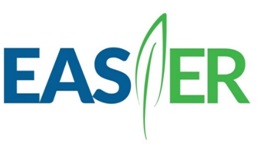Invitation
Volunteers wanted!
EASIER presentation poster
EASIER validation info
We are looking for 200 surgical residents and 60 experienced surgeons to validate our new learning platform. Our platform has been developed thanks to EU-funded Erasmus+ action through the cooperation of Universities and SMEs with a longstanding experience in surgical training.
EASIER introduces an innovative paradigm for online learning of minimally invasive surgery (MIS) and interventional skills. We provide the tools to create pedagogically curated learning courses where students can train both their technical and nontechnical skills. Our platform will provide seamless integration of third-party assets (box trainers, virtual reality simulators) that can be used to program simulator tasks as part of specific courses. Course assessment is broken down by the different technical and nontechnical skills, providing a comprehensive record of the residents’ progress to mastery.
All volunteers completing the validation will gain exclusive early information before public release and a 1-year free subscription to the EASIER platform.
For more information on project EASIER please visit
http://www.easier-project.eu/
Or find more information in the attachments to this email.
If you are interested, you can enrol in the programme through the following link:
Once you complete registration, you are welcome to join us at our kick-off webinar on the 17th December 2020 from 16:00-16:45 CET, where we will present:
- The EASIER project goals and mission
- The EASIER platform
- The validation trials
Thank you for being a vital part in the efforts to improve online learning of surgical skills!
The EASIER Team
Aims
SAFER SURGERIES THROUGH BETTER TRAINING
Education of surgical and interventional professionals is nowadays a key challenge in European Healthcare systems. On the one hand, patient safety concerns toward surgical errors increase the pressure on the preparation of new professionals. On the other, the Working Time Directive imposes constraints on the time that residents and mentors can devote to in-site training. In the search of new and better training paradigms, technology can play an important role.
Nowadays, Information and Communication Technologies (ICT) are used as an aid to teach and assess the different skills involved in being a good surgeon. Virtual reality simulators and serious games, combined with tracking technologies, provide the means for training technical and procedural skills in patient-free environments. E-learning platforms allow residents to study at their leisure the cognitive and decision-making competences required of surgical professionals. Training centres and hospitals are integrating technology enhanced learning (TEL) into their learning programmes; however, there are no general guidelines on their incorporation and use, being highly dependent on the centres’ economical possibilities and the funders’ choices rather than on their pedagogical value. This diversity in fact reflects a larger issue: the lack of a common European pedagogical framework for learning and accrediting surgical and interventional skills. As a consequence, it is up to each country to set curricular and competency standards, which on the long run can be a hindrance to professional’s mobility across the EU.
EASIER is a unique Erasmus+ knowledge alliance involving higher education institutions and companies with leading partners in their respective fields that will, for the first time, bring together different training technologies to provide a multi-skills learning experience for surgical and interventional education. By 2020, EASIER will have developed and validated an innovative solution for teaching and learning technical and nontechnical skills based on (TEL). The solution will integrate TEL assets (virtual reality, augmented video, augmented box trainers, etc.), providing residents and mentors with a learning management system to programme training activities, have access to ubiquitous learning and monitor progress on their learning experience.
Through integration of different technologies, learners will have access to a comprehensive record of achievements and outcomes on both technical and nontechnical skills linked to any course taken. The solution will be grounded on a previously validated learning framework, based on the pedagogical model developed in Lifelong Learning Project MISTELA.
Through its goals, EASIER will reach the whole EU surgical community to set the basis for a strategy on a common TEL-based programme offering structured learning and assessment. Moreover, through the cooperation with the main actors of the field, its aim will be to help standardize training across the continent, favouring mobility of professionals as well as the exchange and co-creation of knowledge in the
